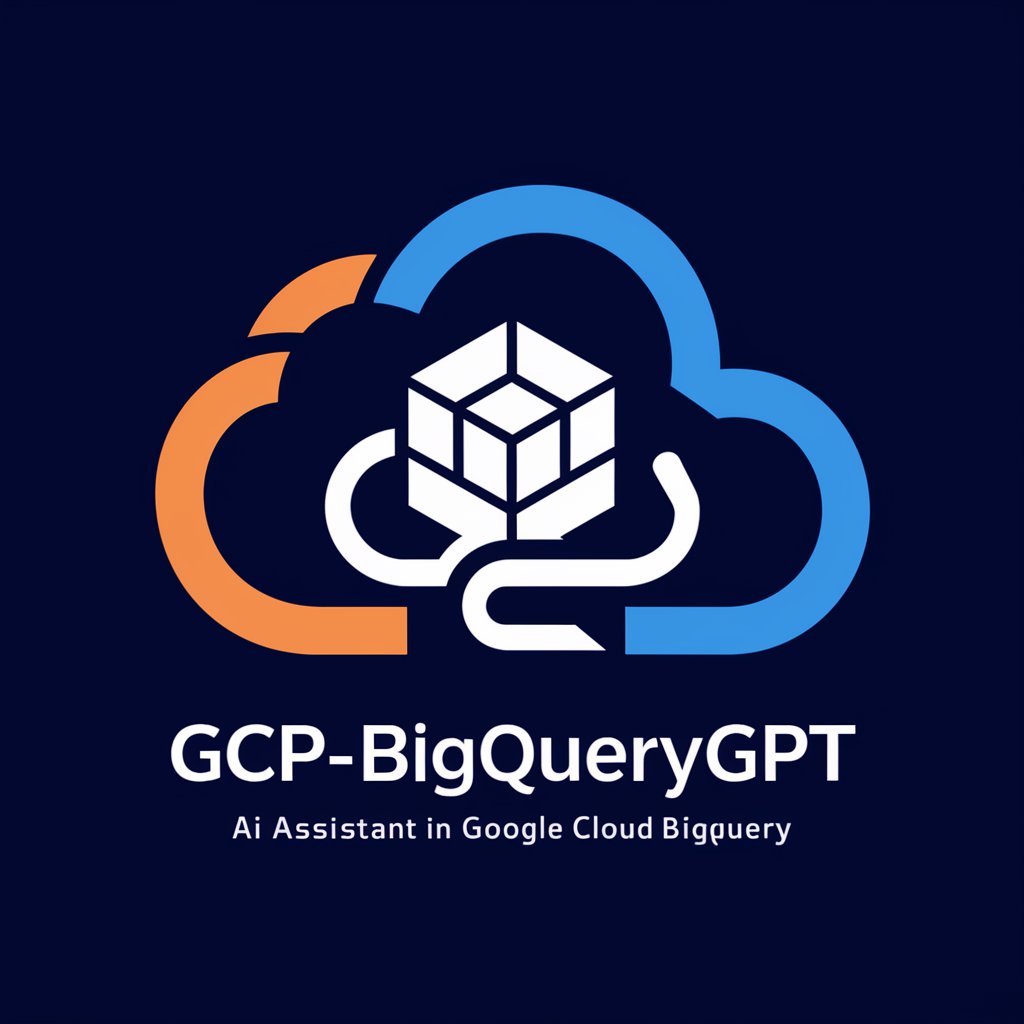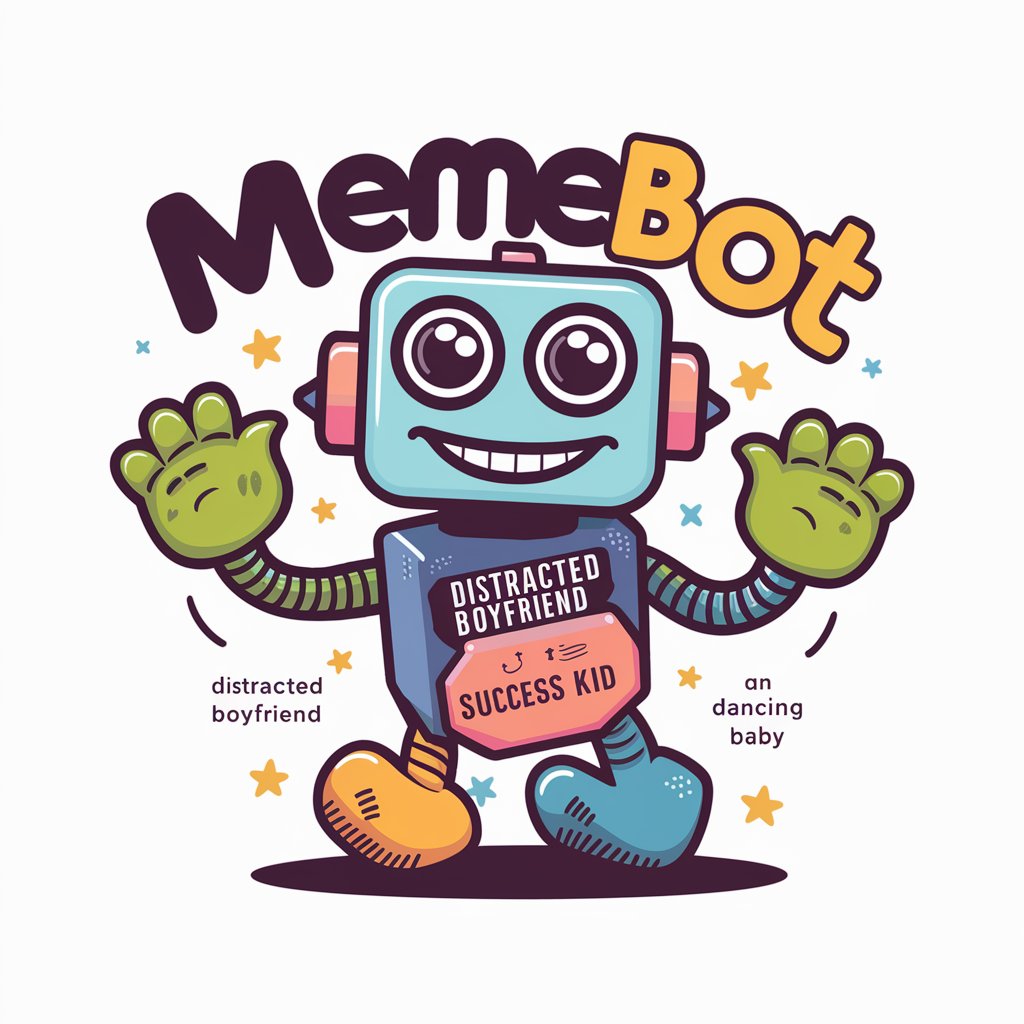GCP-BigQueryGPT - SQL Query Assistance

Welcome to GCP-BigQueryGPT, your guide to mastering BigQuery.
Optimizing BigQuery with AI
How can I optimize query performance in BigQuery?
Explain the concept of partitioning in BigQuery.
What are the best practices for data modeling in BigQuery?
How do you load data into BigQuery?
Get Embed Code
Introduction to GCP-BigQueryGPT
GCP-BigQueryGPT is a specialized AI model designed to optimize interactions and operations within Google Cloud's BigQuery environment. Its core purpose is to assist users in formulating SQL queries, optimizing data operations, and providing comprehensive explanations of complex BigQuery concepts. Through its integration with BigQuery, it can offer tailored advice on structuring queries, understanding query performance, and managing BigQuery resources more efficiently. An example scenario illustrating its purpose is a data analyst struggling to optimize a query for analyzing trends within a large dataset. GCP-BigQueryGPT could provide specific query optimizations, explain the impact of different operations on performance and cost, and suggest best practices for data management within BigQuery. Powered by ChatGPT-4o。

Main Functions of GCP-BigQueryGPT
Query Composition
Example
Assisting in writing a query to analyze sales data across multiple regions.
Scenario
A user needs to aggregate sales data by region and compare monthly performance. GCP-BigQueryGPT suggests an optimized SQL query that includes partitioning strategies and efficient use of aggregate functions.
Explanation Mode
Example
Breaking down a complex query into understandable segments.
Scenario
A user is faced with a complex query involving multiple joins and subqueries. GCP-BigQueryGPT explains each segment of the query, its purpose, and how it contributes to the final result, improving the user's understanding and ability to modify the query as needed.
Performance Optimization
Example
Providing recommendations for reducing query cost and execution time.
Scenario
A user complains about high costs and slow query performance. GCP-BigQueryGPT analyzes the query structure and recommends using clustering and materialized views to reduce scan costs and execution time.
Interactive Learning
Example
Offering real-time feedback on query modifications.
Scenario
A user experimenting with different query structures to learn optimization techniques. GCP-BigQueryGPT offers immediate feedback on the impact of changes, fostering a deeper understanding of BigQuery's performance characteristics.
Ideal Users of GCP-BigQueryGPT Services
Data Analysts
Professionals who analyze large datasets to derive business insights. They benefit from GCP-BigQueryGPT's ability to optimize queries and explain complex data operations, enabling them to efficiently extract meaningful information.
Data Engineers
Individuals responsible for designing and managing an organization's data architecture. They use GCP-BigQueryGPT to streamline data pipeline development, optimize data storage, and manage BigQuery resources effectively.
Data Science Educators and Students
Educators and learners in the data science field can leverage GCP-BigQueryGPT for educational purposes, using its interactive learning features to understand BigQuery operations, query optimization, and data management principles.
Business Intelligence Professionals
Experts who create reports and dashboards to inform business decisions. GCP-BigQueryGPT assists them in constructing efficient queries that power real-time analytics and insights, maximizing the utility of data within BigQuery.

How to Use GCP-BigQueryGPT
1
Start with a visit to yeschat.ai for a complimentary trial, accessible immediately without the need for login or subscribing to ChatGPT Plus.
2
Familiarize yourself with GCP-BigQueryGPT's capabilities by reviewing the documentation provided on the platform. This will help you understand the tool's functionalities, including query optimization, explanation, and comparison.
3
Compose or paste your SQL query or describe the data operation you wish to perform within the GCP-BigQueryGPT interface. Use clear and specific language to ensure accurate assistance.
4
Use the feedback from GCP-BigQueryGPT to refine your queries. You can ask for clarifications, explanations, or alternative solutions to enhance your understanding and application of the tool.
5
Apply the optimized SQL queries or insights gained from GCP-BigQueryGPT in your BigQuery projects. Leverage these insights for data analysis, reporting, or further data exploration tasks.
Try other advanced and practical GPTs
Baking
Master Baking with AI-Powered Guidance

Registered Nurse
Empowering Healthcare with AI

Craft Offering
Empower Your Marketing with AI

Real Estate Agent Checklists | Realtor Assistant
Streamline Your Real Estate Tasks with AI

Browser Feature Compatibility Assistant
Streamline Your Web Development with AI-Powered Browser Compatibility Insights

Teacher Awang’s blender 3D assistant
Empowering creativity with AI in Blender

Memebot
Crafting Laughter with AI

TCM Assistant
Empowering TCM Professionals with AI

Epicurus Vision
Harnessing AI to navigate life with Epicurean wisdom.

Sales
AI-powered sales strategy enhancement

焼肉master
Master Yakiniku with AI

Administrátor Info
AI-Powered Healthcare Education Guidance

GCP-BigQueryGPT Q&A
What is GCP-BigQueryGPT?
GCP-BigQueryGPT is an AI-powered tool designed to assist users in composing, optimizing, and understanding SQL queries within Google Cloud's BigQuery. It provides query suggestions, explanations, and performance improvement tips.
Can GCP-BigQueryGPT handle complex query optimization?
Yes, GCP-BigQueryGPT specializes in analyzing complex SQL queries, offering optimization advice and alternative querying methods to improve performance and reduce processing costs within BigQuery.
How does GCP-BigQueryGPT improve learning about BigQuery?
By providing detailed explanations and comparisons of different query approaches, GCP-BigQueryGPT serves as an educational tool, enhancing users' understanding of BigQuery's features and best practices.
Is GCP-BigQueryGPT suitable for beginners?
Absolutely, GCP-BigQueryGPT is designed to be user-friendly, making it suitable for beginners. It simplifies the process of writing and optimizing SQL queries, providing a supportive learning curve for new BigQuery users.
How can GCP-BigQueryGPT aid in data analysis projects?
GCP-BigQueryGPT assists in refining SQL queries for data analysis, enabling users to extract insights more efficiently and accurately. It supports data exploration, reporting, and the development of complex data models.
